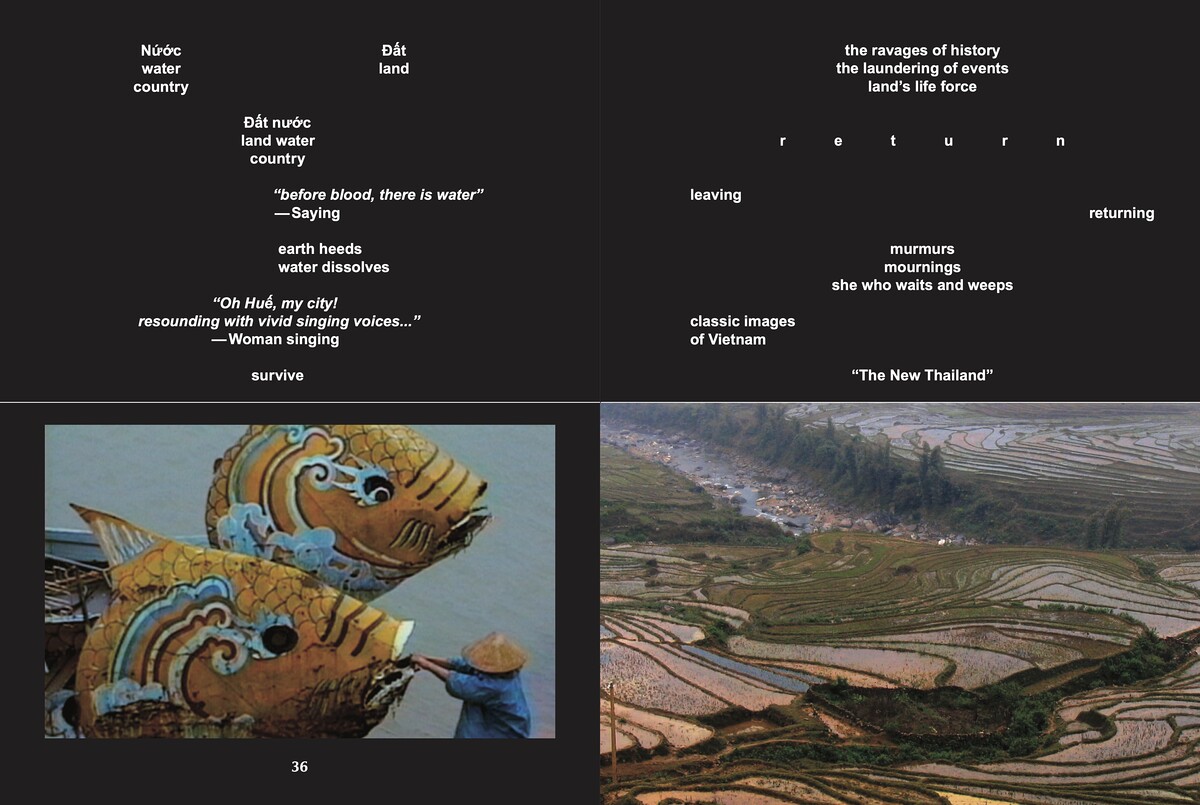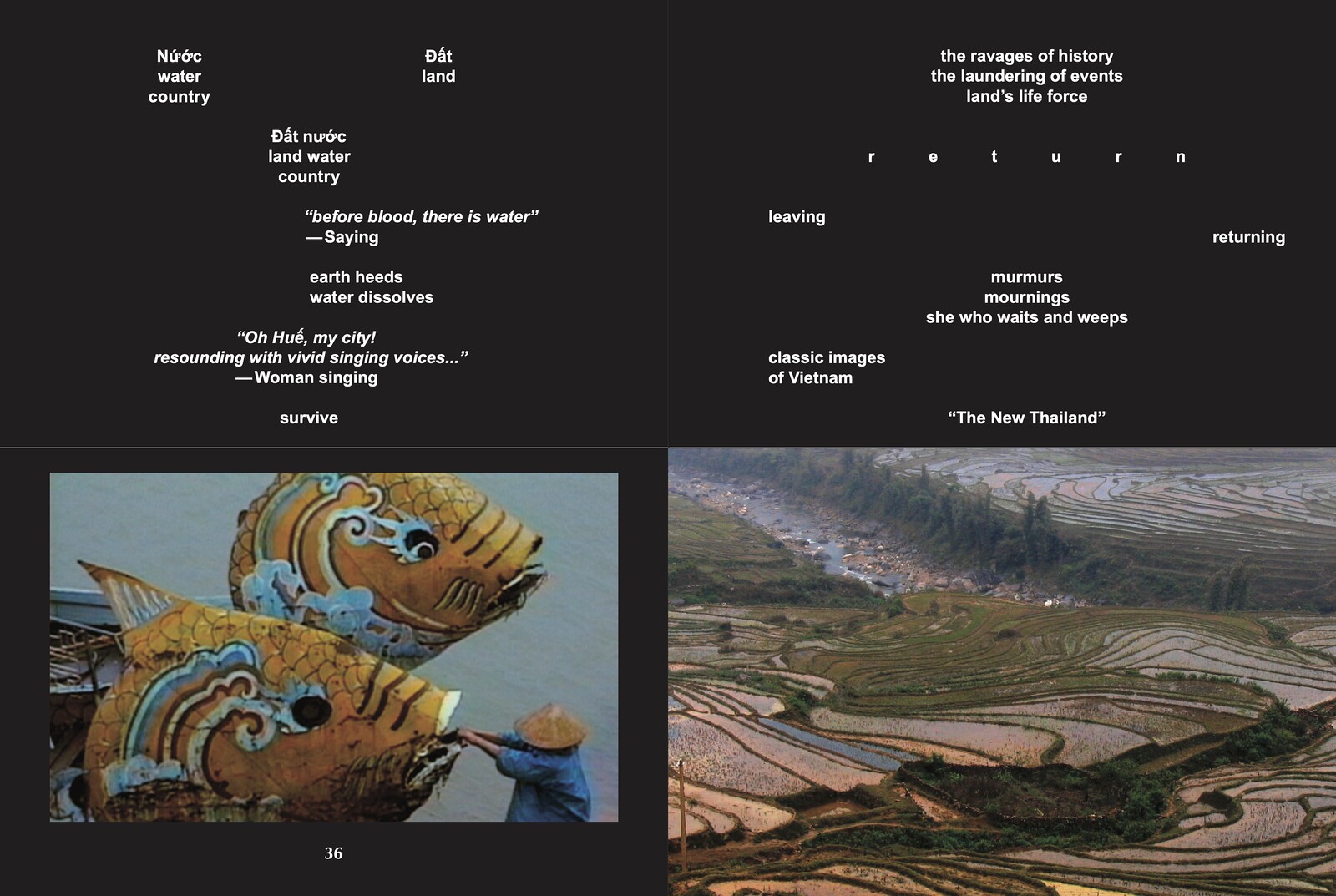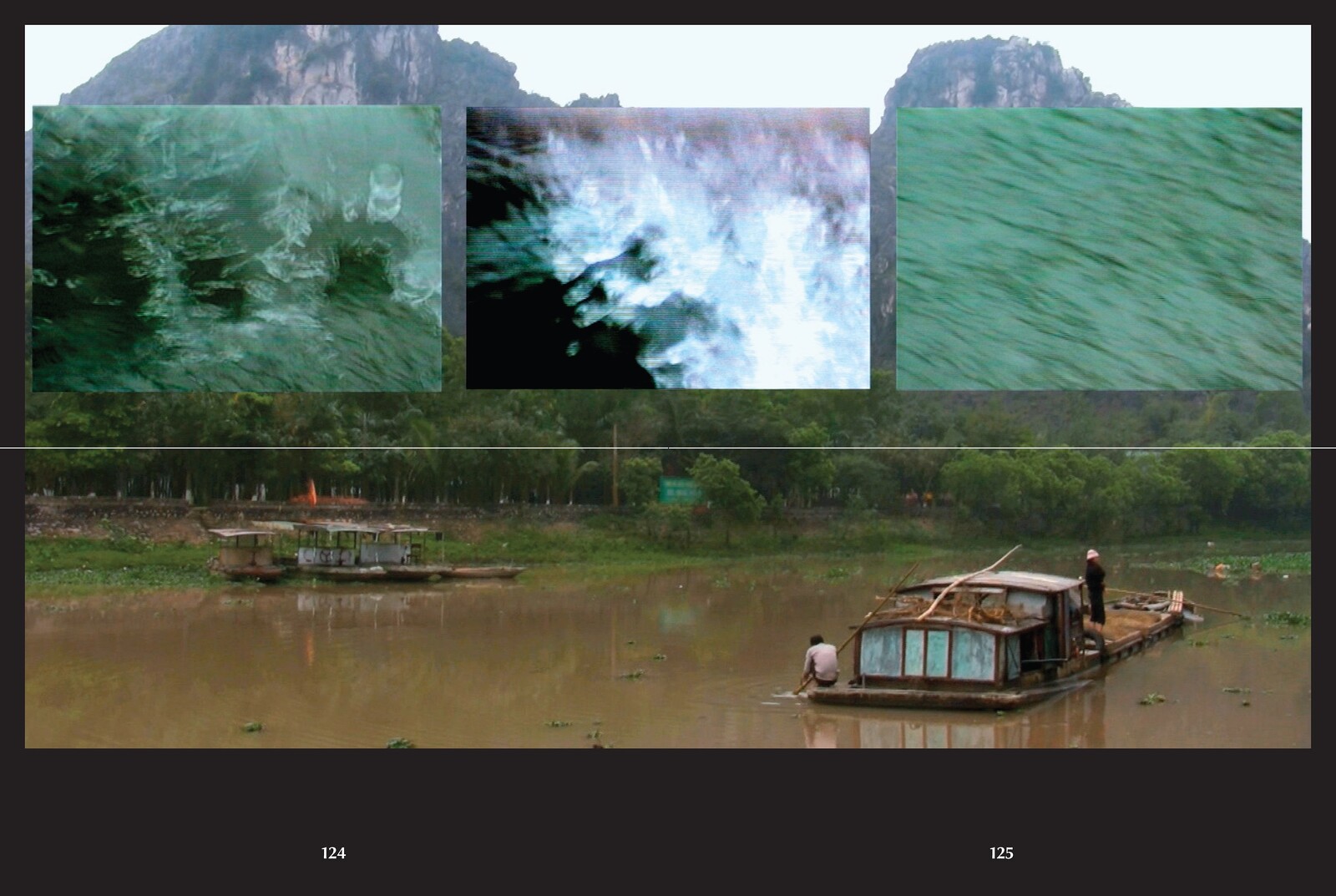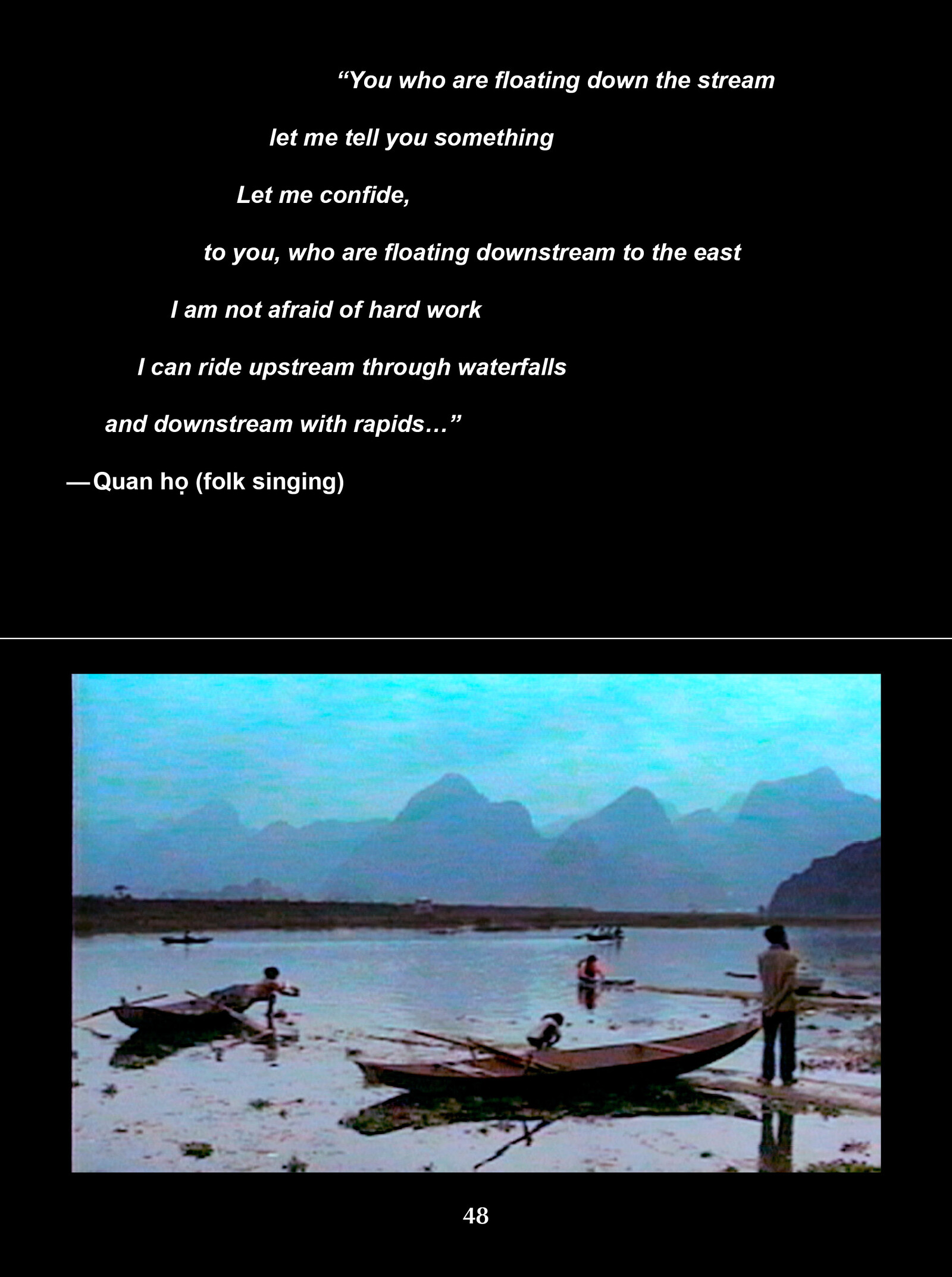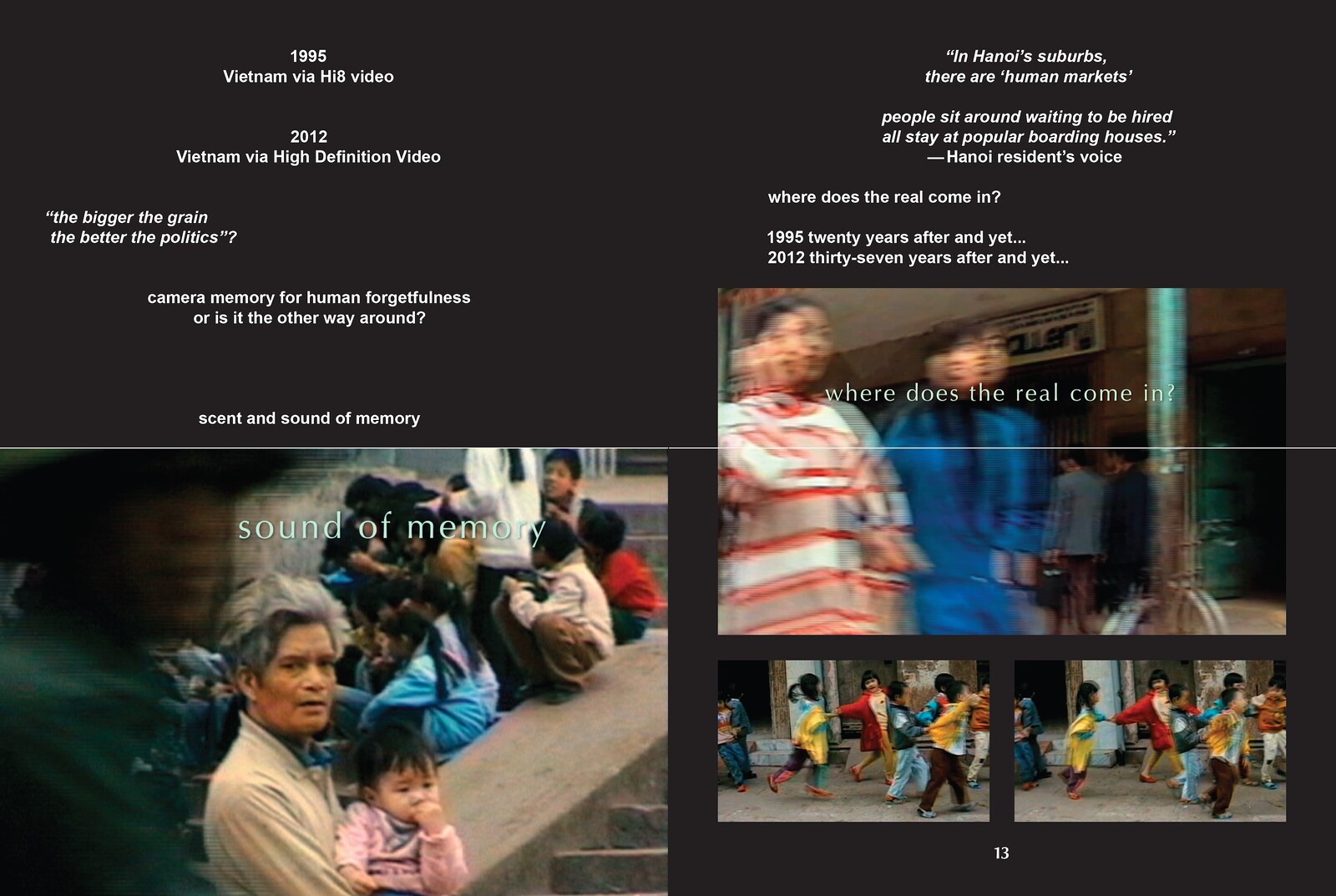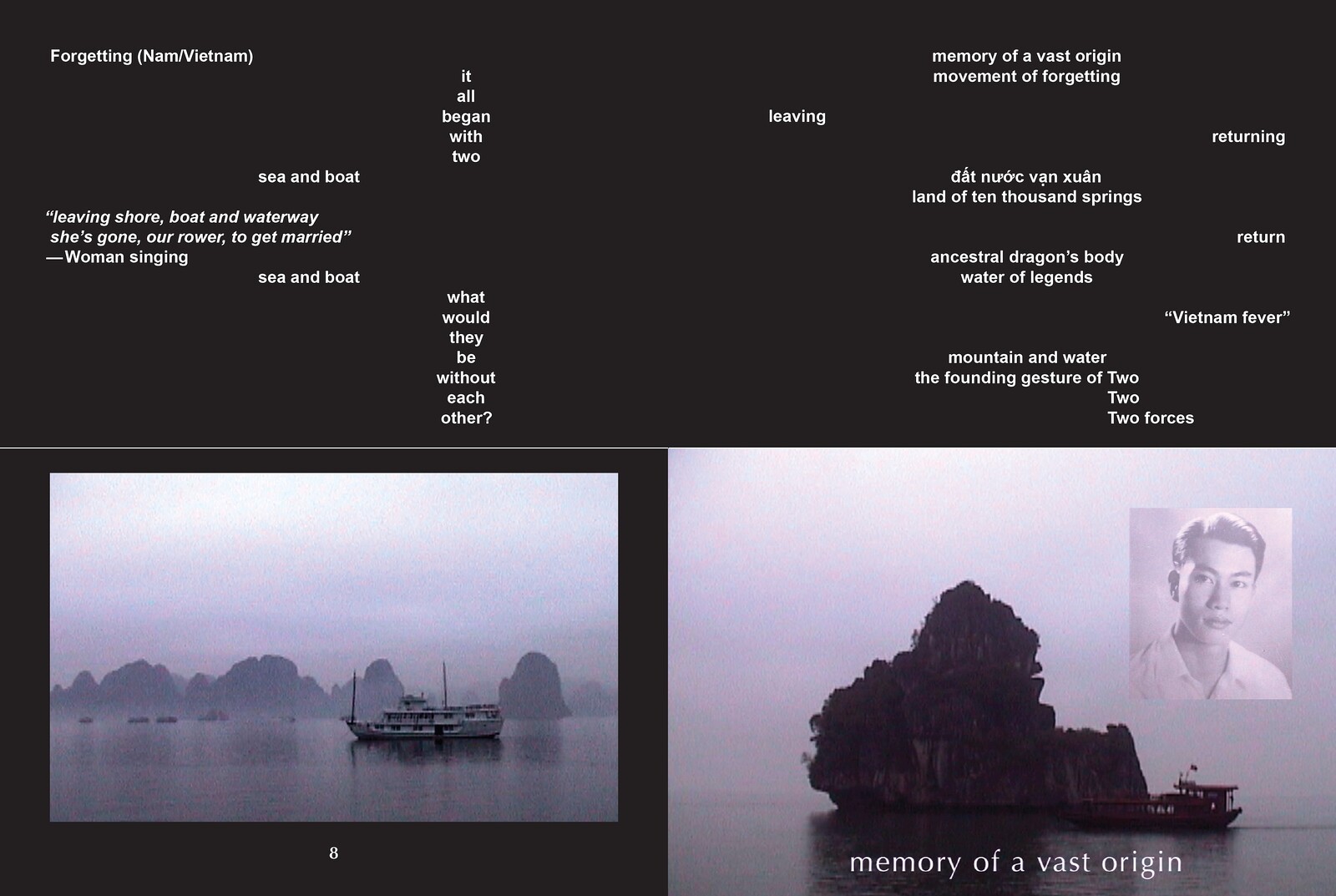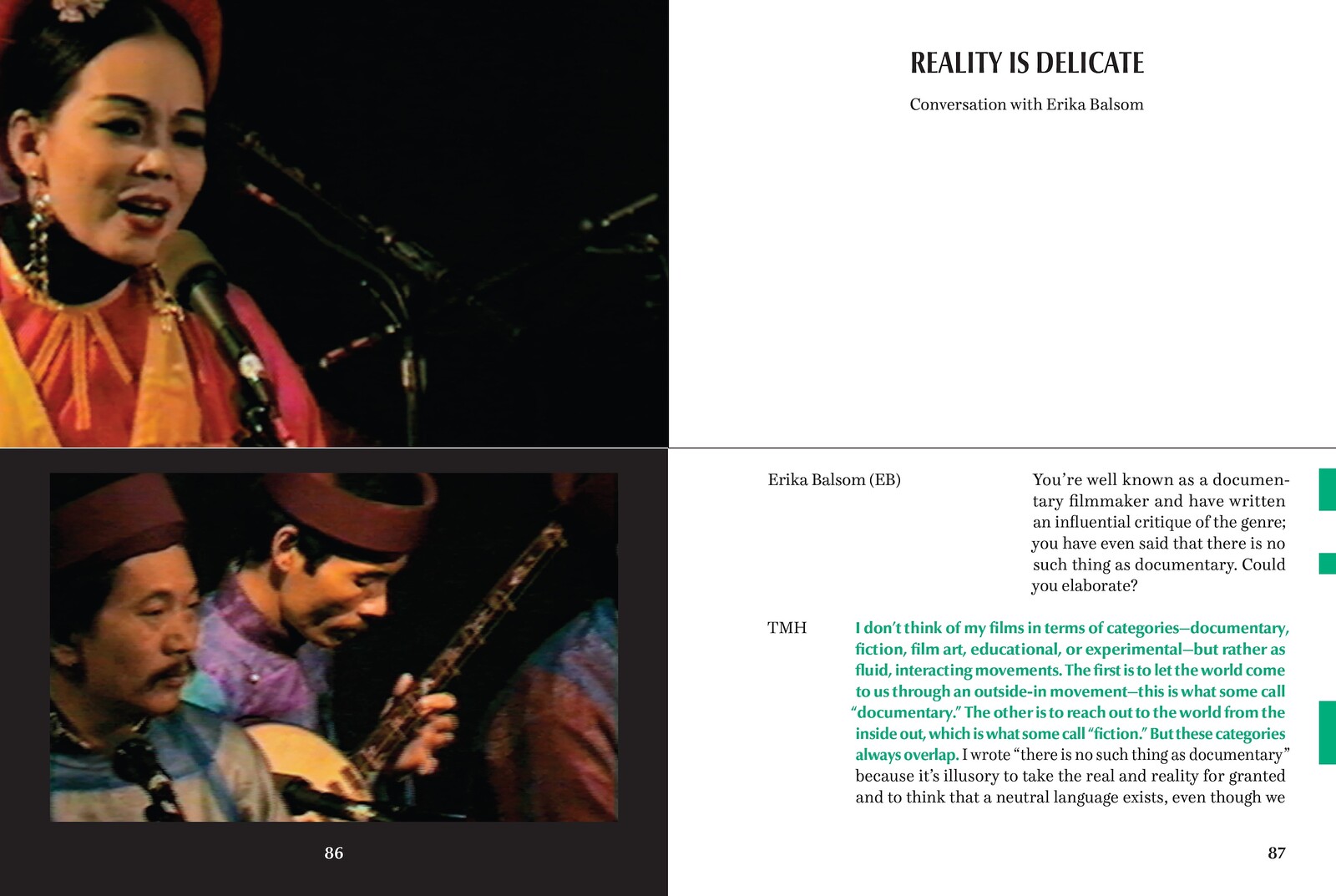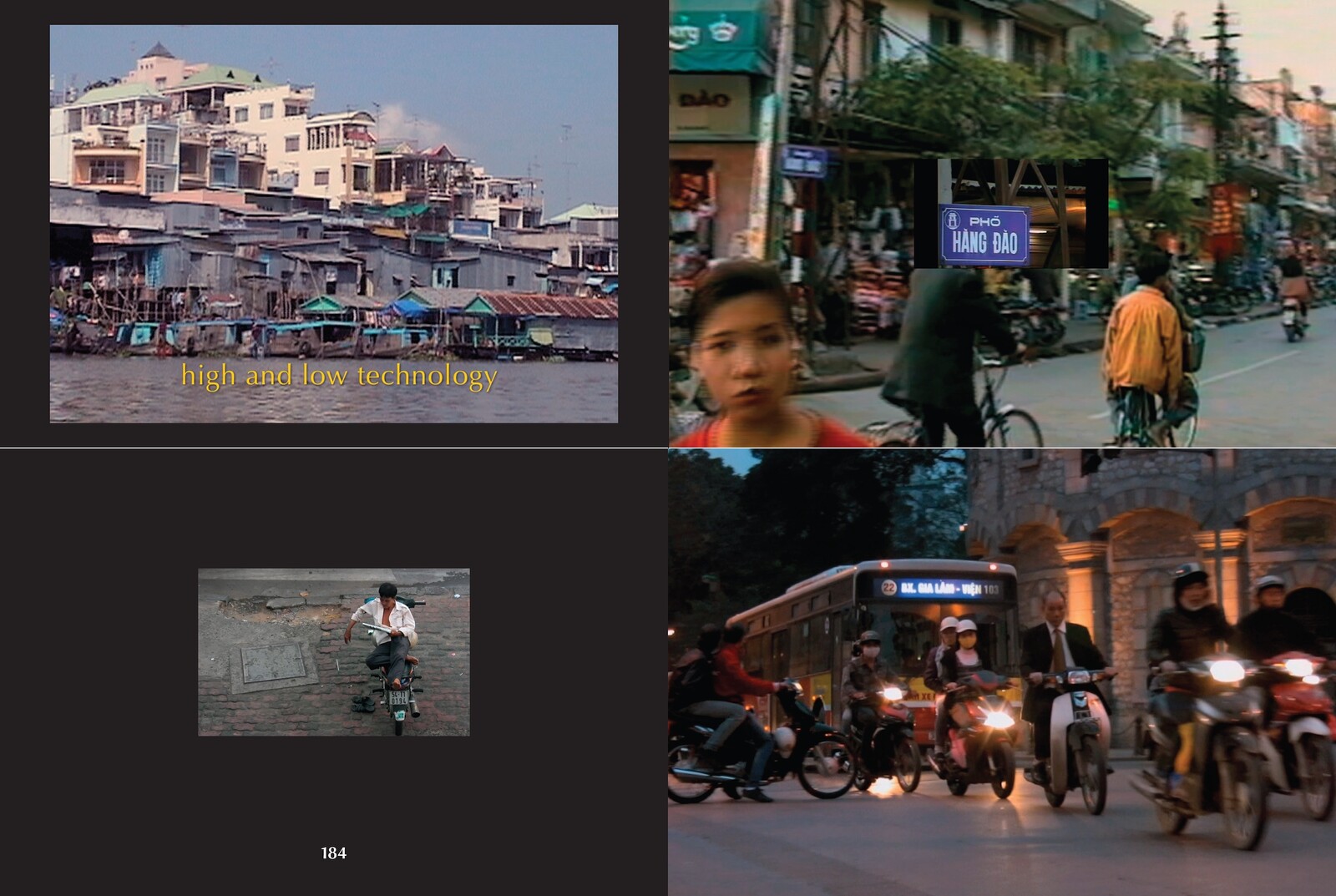The Twofold Commitment revisits Trinh T. Minh-ha’s time-dipping Forgetting Vietnam (2015), a documentary feature about the mythical origins of Vietnam. Which is to say, it’s a book about a film which reflects on what the name of a country evokes of the history, people, and cultures associated with it. Seven interviews conducted between Trinh and eight media scholars and critics compose half of the book. Each approaches the filmmaker and writer’s work from a different tack, focusing on aspects of Forgetting Vietnam that are representative of her multi-hyphenate career. Irit Rogoff, for example, homes in on what it means to make a film for the feminist viewer, while Stefan Östersjö concentrates on the multi-sonic soundscapes within it. And Lucie Kim-Chi Mercier’s discussion, “Wartime: The Forces of Remembering in Forgetting,” provides important historical background about the country in question.
As a filmmaker and theorist, Trinh strives to disavow classification and impress upon her audience the necessity of the extra- and non-categorical. Thus certain terminology, like some already employed in this review, requires inverted commas more often than not. “Documentary” refers to a moving-image essay composed of Hi8 footage from 1995 and HD footage from 2012, which Trinh gathered on separate visits to Vietnam. “Essay” is really its opposite, the “anti-essay”; both have been used to describe the montage-like poetics informing Forgetting Vietnam’s associative, nonlinear structure. Trinh’s embrace of Jack Halberstam’s concept of trans* as a vehicle for understanding the mode of always-crossing intrinsic to her practice is reflected in the film’s very constitution.1
Trans* compliments other related modes underpinning Trinh’s critical thinking. Non-knowing, differentiated from ignorance, is one. As she remarks to Domitilla Olivieri in the conversation titled “The Spiral of Time,” it “allows us to wander, wonder, and start afresh” in meeting the world and the myriad Others whom we live alongside. Conscientious proximity is another, which she clarifies for Erika Balsom in “Reality is Delicate.” “By not trying to assume a position of authority in relation to the other, you are actually freeing yourself from the endless criteria generated with such an all-knowing claim and its hierarchies in knowledge.” Trinh introduced this concept of “speaking nearby” in Reassemblage, the 16mm film she made alongside rural Senegalese communities in 1982. What was a statement of her own asymptotic position vis-à-vis the social context in which she made the film has since become indelibly associated with her work. Moreover, it destabilized the “objective” certainty of the documentary genre and dealt a blow to the credibility of ethnographic film.
In Forgetting Vietnam, Trinh shifts her careful frame toward her “so-called native land,” demonstrating the experience of encountering one’s own culture according to the same ethics applied when encountering another’s. The front half of The Twofold Commitment gives one a taste of Forgetting Vietnam by reproducing its script, which appears in the film as its own dynamic, visual layer, and similarly accompanies the book’s full-color stills. These texts, neither subtitle nor caption, are descriptive and wily. The conspicuous presence of language conveys a paradox at the heart of the film, and a central concern of The Twofold Commitment. Documentation historicizes the cultural record, displacing the multivalence of an experience. Remembering similarly modifies and excludes in the manner of recording. But acknowledging something as forgotten is to acknowledge something lost. To forget means one can approach the forgotten with sensitivity for making a new memory.
The title Forgetting Vietnam refers to the ways in which this paradox plays out within the scope of Trinh’s sensitive treatment of Vietnam-on-film from two postwar eras. They represent a tier of “twos” and belong to a cultural field encompassing countless dualities among individual and collective identities bound together under conditions of multiplicity. Hence, Trinh’s theme of fluidity between one phenomenon and another: land/water, sea/boat, coming/going, past/present. A surprising portrait arises of a Vietnam whose “boundaries,” she tells fellow writer and filmmaker Xiaolu Guo, “are constantly morphing,” negotiating the felicitous as well as the challenges wrought by colonial violence, war, and the ongoing reach of historical trauma into everyday economic and gender relations.
The conversations reproduced in the book make clear Trinh’s challenge to the “ruling patriarchal order and its mono-subjective culture of domination, production, and exploitation,” with nonbinary thinking at the root of both feminist and postcolonial thought. For those unfamiliar with the artist’s work, some catching up might be required, as a generalizing preface is absent (perhaps because such commentary would be anathema to her very practice); however, Patricia Alvarez Astacio and Benjamín Schultz-Figueroa’s canny interview, placed first in the line-up, does cover basic ground. The learning curve is also softened by smart design choices, including type printed in green so as to flag key concepts and ideas. And an index of germane terms extends this accommodation, though the entries lack definitions—appreciating their manifold connotations falls to the reader. The Twofold Commitment guides one toward a richer understanding of Trinh’s dedication to advancing film and theory accordingly, without presuming to hold the final word.
Trinh T. Minh-ha’s The Twofold Commitment was published by Primary Information on May 16.
In a footnote to his interview in the book, Stefan Östersjö cites Jack Halberstam’s explanation of the asterisk: it deflects the conventional definition as a state of transition towards an established conclusion. Trans* is transitivity unencumbered by the constraints of final form.
